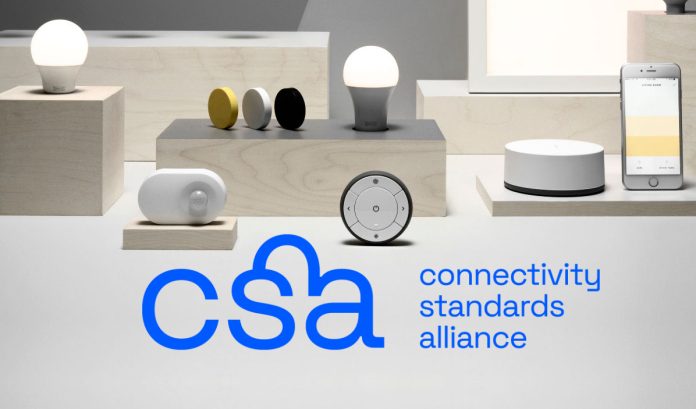The Zigbee Alliance has rebranded as the Connectivity Standards Alliance (CSA) to manage a developing portfolio of connectivity brands based on the short-range Zigbee standard. Alongside, it has announced a new brand, Matter, for its new royalty-free connectivity standard for smart home products, developed as part of the key Project Connected Home over IP (CHIP) project, led by Swedish flatpack furniture maker IKEA.
The alliance said it will continue to develop Zigbee technology and retain the Zigbee brand. But the move is a response to the recent work with IKEA in Europe on the CHIP project, to develop Matter as a new specification for smart homes — and to feedback on development of Zigbee standards globally, and particularly in Europe. It positions the alliance as a member organisation for multiple connectivity technologies, all based on the IEEE 802.15.4 specification.
Existing standards include Smart Energy for Zigbee-based networks to connect utility assets, Green Power for energy-harvesting (batteryless) Zigbee-based IoT devices, and rf4ce for Zigbee-based consumer electronics in home entertainment systems. A statement said: “The alliance is elevating its brand identity to better align with this role in shaping the future of the IoT by creating world-wide standards that impact the market.”
The organisation said more than 560 Zigbee technology devices were certified in 2020, up by around 30 percent on 2019; first-quarter 2021 certifications are up by 50 percent compared with the same period a year ago. Over half a billion Zigbee chipsets have been sold and nearly four billion are expected to ship by 2023, it said. The addition of Matter devices later in 2021 will boost device certifications further, it added.
Tobin Richardson, president and chief executive of the new CSA, said: “This year is historic for the alliance as our growth and efforts flourish with the demand for smart home and building connectivity. It’s the perfect time to both unveil our new brand, positioning the alliance as the home for collaboration and development of IoT standards with our members, and launch these trusted marks recognizable by the market we collectively serve.”
The alliance claims 350 companies and 3,000 individuals as members, in 37 countries. It has partnered with the World Economic Forum (WEF) on its Council on the Connected World, formed in 2019, to “help build a global connected future that is more sustainable, resilient, and equitable for all”.

